Enhancing vocabulary Building Vocabulary Worksheets for Ages 4-9
5 filtered results
-
From - To
Welcome to our Enhancing Vocabulary section, specifically designed for young learners aged 4-9! Our comprehensive worksheets make building vocabulary engaging and enjoyable for children. Packed with colorful illustrations and age-appropriate exercises, these resources help kids learn new words through fun activities like matching, fill-in-the-blanks, and word searches. Each worksheet focuses on diverse themes to spark curiosity and encourage language development. Whether in the classroom or at home, our engaging materials empower children to expand their lexicon while boosting their reading comprehension skills. Explore our worksheets today and give your children the tools they need to succeed in their early reading journeys!
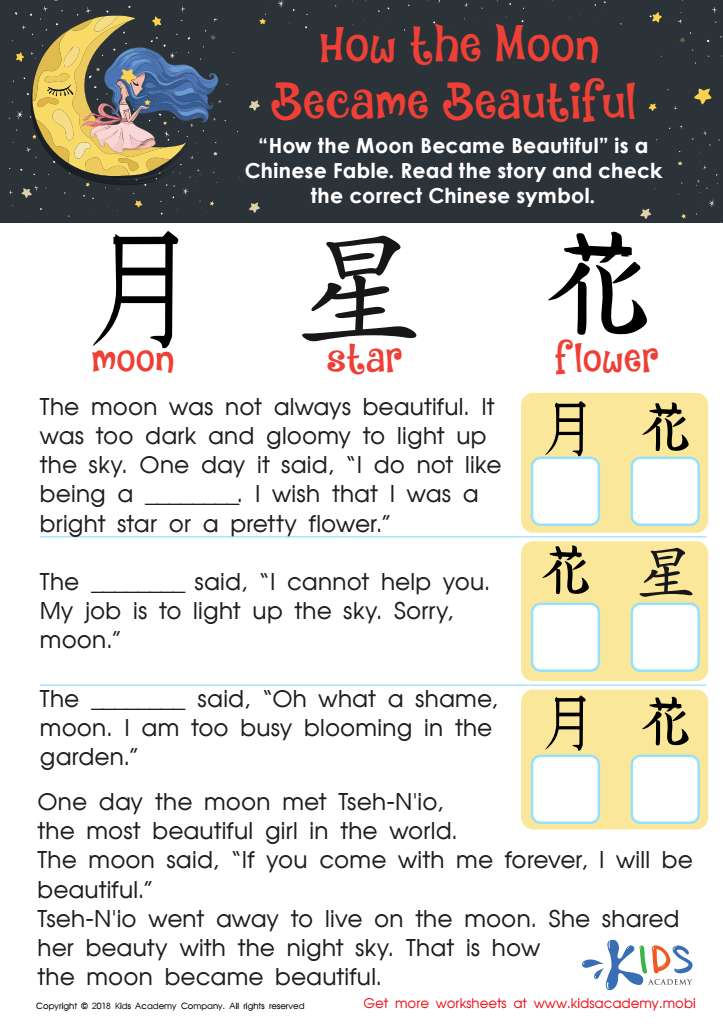

How the Moon Became Beautiful Worksheet
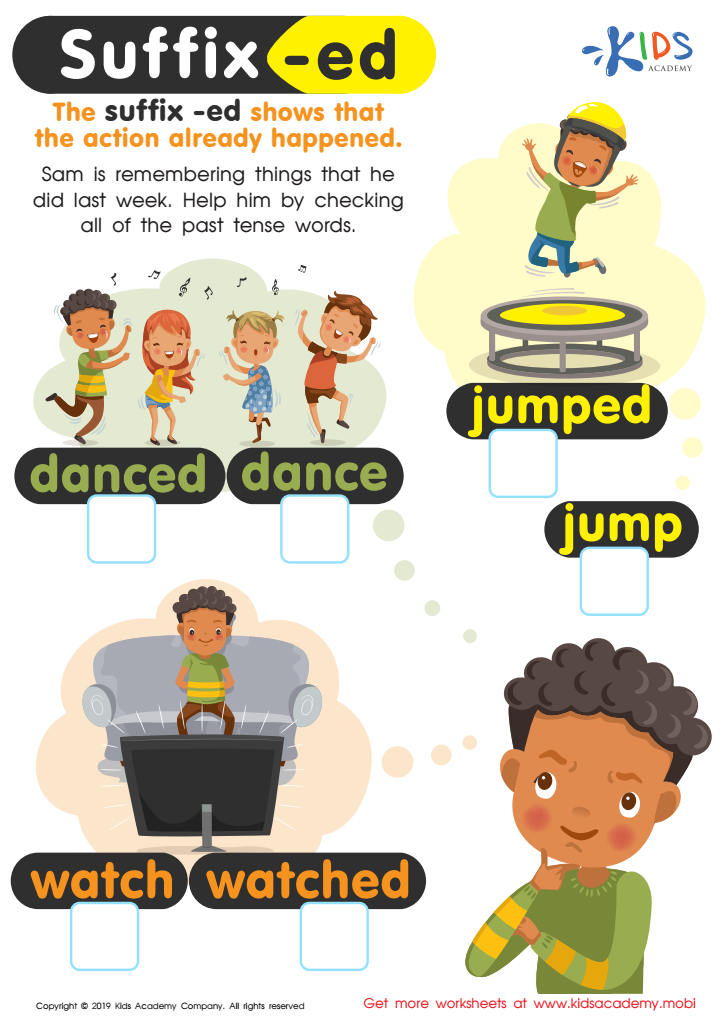

Suffix-ed Worksheet
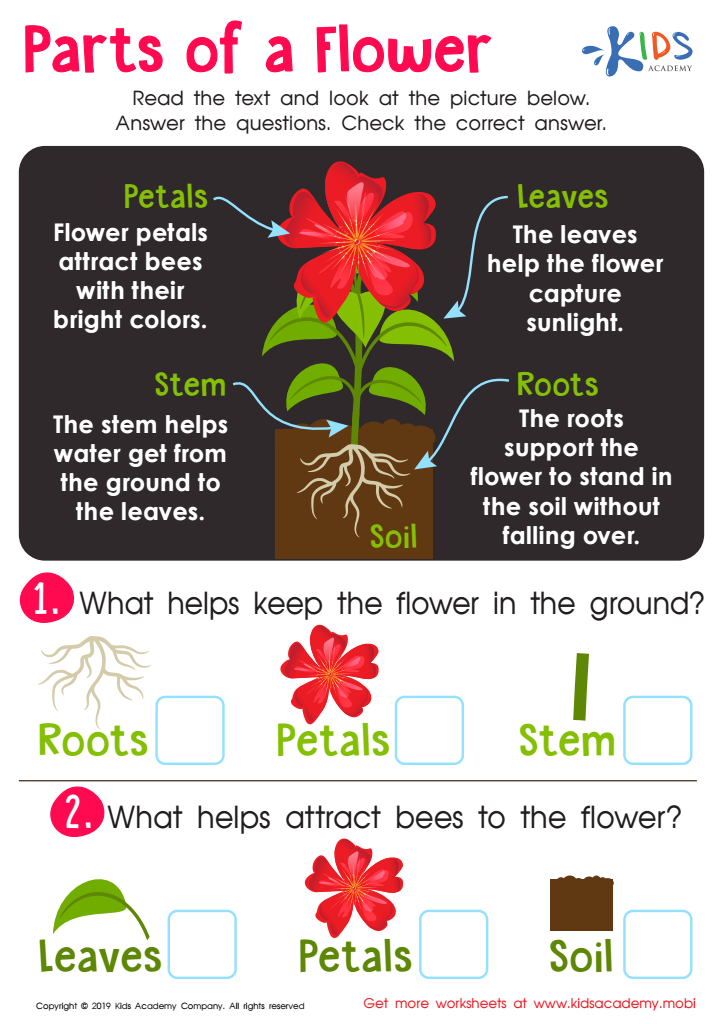

Parts of Flower Worksheet
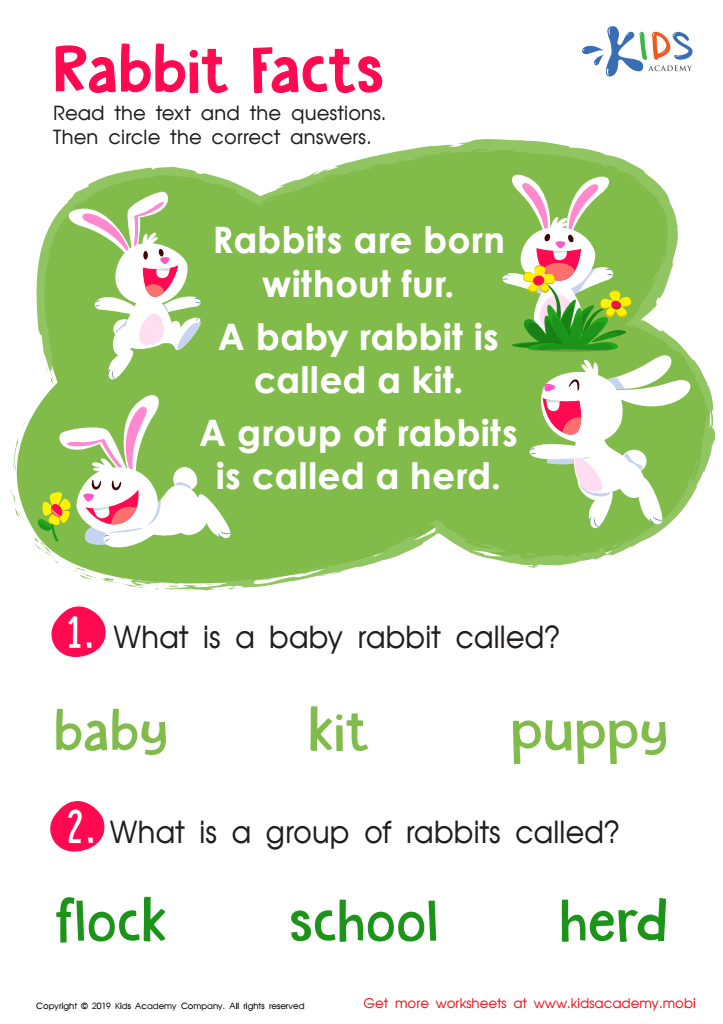

Rabbit Facts Worksheet
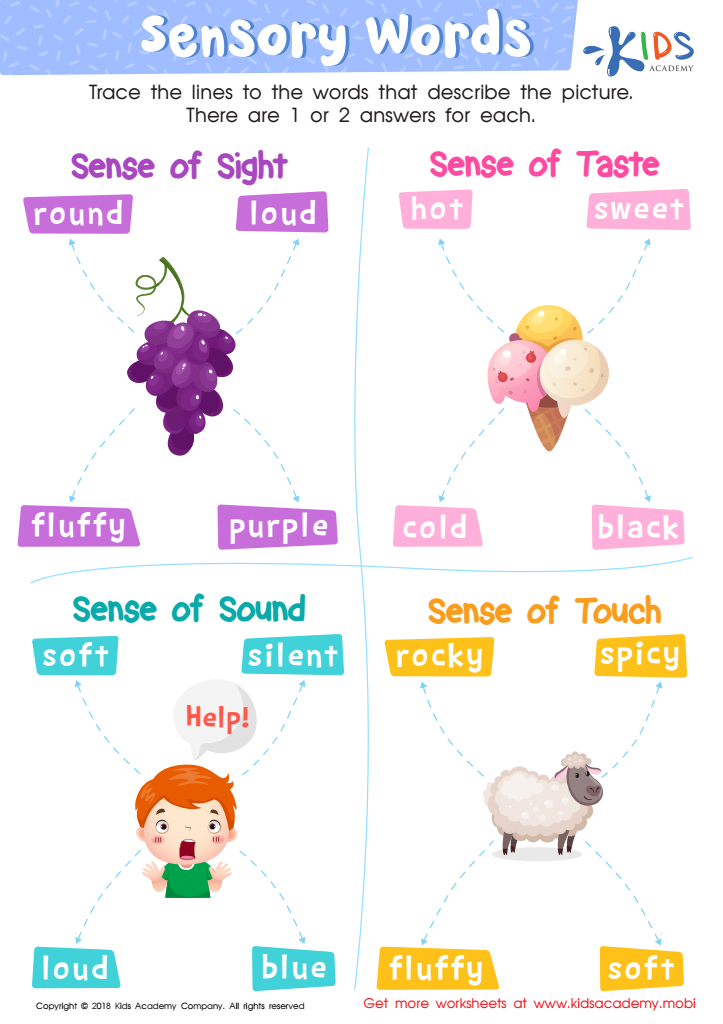

Sensory Words Worksheet
Enhancing vocabulary for children aged 4 to 9 is essential for their academic and social development. At this formative stage, vocabulary building not only supports reading comprehension but also boosts communication skills. A rich vocabulary enables children to express their thoughts, feelings, and ideas more clearly, which fosters confidence in social interactions.
The ability to articulate oneself effectively lays the groundwork for effective learning. Children with a strong vocabulary are better equipped to grasp complex concepts, engage with various subjects, and perform well academically. Additionally, exposure to diverse words encourages critical thinking as children learn to understand nuances in meaning and context.
Moreover, vocabulary development contributes to emotional intelligence. When children can articulate their emotions or describe situations accurately, they learn to navigate social dynamics more adeptly.
By engaging in activities such as reading together, playing word games, or encouraging discussions that introduce new words, parents and teachers can actively enhance vocabulary. Such investments not only facilitate academic success but also shape well-rounded individuals who are prepared for future challenges. In summary, prioritizing vocabulary building is vital for nurturing effective communicators and lifelong learners.

 Assign to My Students
Assign to My Students





























